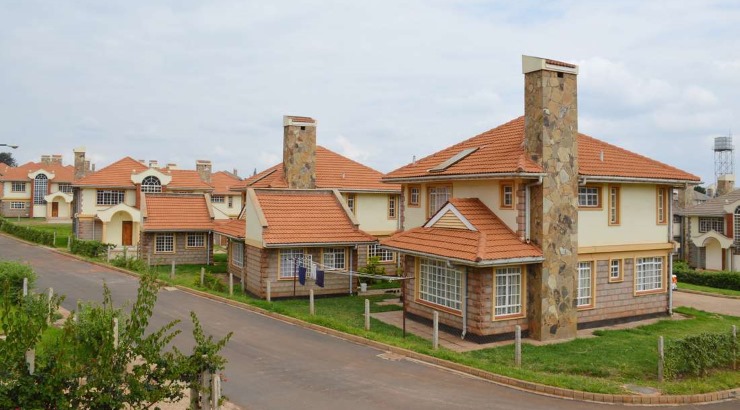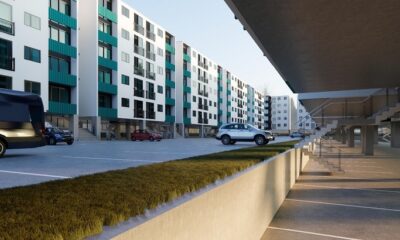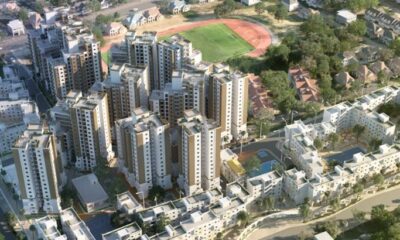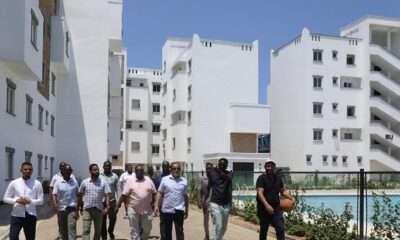Residential Projects
Uhuru housing plan to shake up Kenya real estate market
The initiative will bring into the market thousands of new homes for as little as Sh500,000.

The Kenyan government has laid out an elaborate low-cost housing strategy that is likely to revolutionise the local real estate sector by bringing into the market some new residential houses for as little as Sh500,000.
According to Transport, Urban Infrastructure and Housing Cabinet Secretary James Macharia, the State will provide land to private investors who will then take advantage of various building technologies and economies of scale to deliver “truly affordable” homes for citizens.
The government has short listed 35 companies to undertake a pilot project in Mavoko, Machakos County, which will serve as a prototype for a planned national roll-out of an ambitious housing plan that aims to meet the needs of the low-income urban workers.
Under the pilot project, a total of 8,000 low cost two-and three-bedroom houses will be built on a 55-acre parcel of land that has been provided by the government – each of which will be sold for between Sh1 million and Sh1.5 million.
“Some 60 contractors expressed their interest in putting up the houses under an Engineering and Procurement Contract (EPC) that allows them to build and deliver houses to the government.
“We have since short-listed 35 local and international firms that will be allowed to participate in the tendering process expected to commence shortly,” he said.
Under the EPC model, a contractor funds a project and is paid upon its completion once the State is satisfied with the quality of the homes.
The project is expected to promote the use of low-cost building technologies that are currently shunned by many Kenyans who view them as inferior compared to traditional brick and mortar structures.
A total of Sh2.6 trillion will be spent to build a million low cost homes across Kenya in the next five years as the country seeks to bridge its national housing gap that now stands at about 1.85 million units.
READ: Inside Kenya’s Sh1 trillion plan to promote low cost housing plan
According to Mr Macharia, some 800,000 houses will be built under the private public partnership (PPP) model while the remaining 200,000 homes will be built under a social housing scheme – where a unit will be sold for between Sh500,000 and Sh700,000.
Social housing refers to dwellings provided for rent or sale at a fairly low price by housing associations and local governments. It is offered to citizens on extremely low incomes or those with special needs.
To meet its target, the government has pledged to offer private developers about 7,000 acres of land as part of an incentive package.
“We are putting together a land bank because one of the ways we are going to realise affordable housing is when the government provides land for the private sector to work on because 30 per cent of the cost of housing is actually land,” Aidah Munano, PS in the ministry of housing and urban development said last month.
“If the government can provide land, then we may be 50 per cent there (meeting the housing target),” she said.
In addition to land provision, the government has halved corporate tax for property developers who build at least 400 low-cost homes to encourage construction of at least 200,000 affordable houses a year.
According to the State, a low-cost house is one that costs a maximum of Sh3 million.
“We are thinking of houses where the sale value will be around Sh3 million. These are houses such as studios, two bedroom and three bedroom units. If we go beyond Sh3 million it will not be affordable housing anymore,” says Ms Munano.
Incentives to developers will also include development of support infrastructure such as access roads, electricity, water, health facilities and schools.
“We are currently open to dialogue with investors who want to partner with us in this agenda. We are offering incentives that are cushioned in sound win-win partnerships to house the nation,” Ms Munano said.
Although the actual sizes of the proposed homes are yet to be revealed, the pricing of the State-backed homes is expected to disrupt the ‘low-cost housing” market that is currently dominated by small housing development firms and saccos – whose units are sold for more than Sh3.5 million.
Last year, the World Bank urged Kenya to come up with tangible incentives that motivate property developers to shift focus to truly affordable houses that can be acquired by low income earners.
This came amid revelations that house prices in the country had recorded a ten-fold rise in the past seventeen years – pushing a majority of Kenyans into informal settlements.












